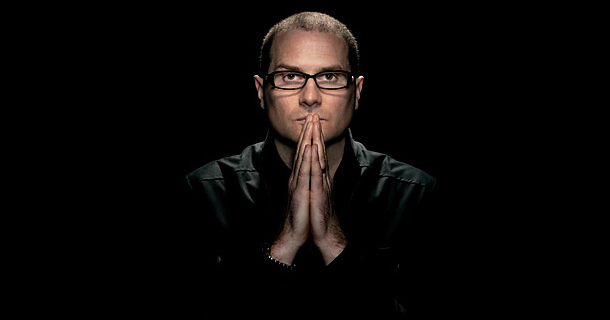This is an excerpt from Misfit Faith, Chapter 4: “Unity in Diversity (Or, We’re One But We’re Not the Same)”
Like it or not, we are all connected.
Not long after the tragic shooting of unarmed Florida teenager Trayvon Martin by George Zimmerman, a slogan began to spread across various social media platforms: “I Am Trayvon Martin.” What this slogan was attempting to express is that we are all potential victims of xenophobia, fear, and the violence they incite. We’re all a minority somewhere (and you may be one right where you live someday), and the sooner we can recognize the dangers of mistrusting the dreaded Other the closer we will be to actually living in a society in which dozens of people aren’t gunned down in mass shootings every month (hey, a guy can dream, right?).
So yes, I am Trayvon Martin. I am each of the victims of the Orlando shooting at the Pulse Nightclub earlier this summer. I am the stranger. I am my enemy, for I share something in common with him that is deeper than what divides us: human nature.
Embracing this has been one of the most liberating things in my life. When I encounter someone foreign or strange to me, my desire to dismiss has diminished and my propensity to lock in on how we are different has slowly been eclipsed by the tendency to seek out our similarities and sameness (as well as to learn from how we differ, since they might be strong where I am weak). Far from providing me occasions to distinguish myself, Catholicism has provided a touchstone of connection and commonality with others: “You have priests? We have priests too!” “You have altars? So do we!” “You revere nature and exalt the earth? We do as well, and even see the divinity in created things!”
Here’s my point: It’s not hard to find common ground with people of other religious or cultural backgrounds, and a “You like pizza? I like pizza!” approach to life is far healthier than one whose default posture is “You’re doing it wrong.”
This posture is one that is necessarily vulnerable, because it opens us up to self-examination and the possibility of realizing that we have been overly narrow or even mistaken about things. The fact is that the world is much smaller than it used to be, and discovering differing perspectives much simpler. If Catholicism is truly “catholic” (which means “universal” and comes from the Greek phrase meaning “according to the whole”), then the ability to encounter new perspectives should be looked upon as welcome and fortuitous rather than scary. I would prefer to be quick to learn—and even to learn that I am wrong—than be so circumspect that I’m constantly walking on eggshells or tiptoeing around viewpoints that differ from my own.
As our world shrinks and our borders become more fluid, it is all too easy to retreat into our insulated bunkers and familiar, fortified ghettoes. But to do so would be to miss far too many opportunities to learn and be stretched. I mean, what if the guy with the curly sidelocks and yarmulke has something to teach me about fearless discipline and devotion, or the woman with dreadlocks protesting Monsanto knows something about the politics of food that I’ve not yet learned? Sure, the former may be a bit austere and the latter may have too much pit-hair and BO, but so what? I’d rather endure a bit of discomfort and odor than spend my life in some pitiful circle-jerk, an echo-chamber filled with a bunch of nodding avatars of myself.
Embracing and embodying a misfit faith is not about seeing the light, patting ourselves on the back, and then making converts. (Plus, is there some “light” we’re supposed to see, really? So much of our experience of the real world feels more like twilight than some binary choice between good guys in white hats or bad guys in black ones.).
Being a misfit means discovering that a lack of curiosity about the other is not a virtue but a vice, and an ugly one at that. Indeed, misfit faith is all about being okay with being wrong.
And the nice thing about being wrong once is that it liberates us to do it again.



